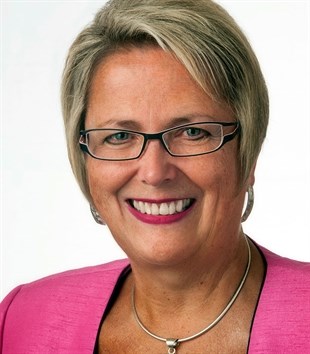
Image Credit: Shutterstock
August 16, 2017 - 11:33 AM
For the first time in 16 years, there’s a new political party in power for B.C. and with new power comes new responsibilities.
The NDP-Green coalition headed by Premier John Horgan has introduced a new cabinet role – the Mental Health and Addictions Minister. Judy Darcy, MLA for New Westminster, will be the province’s first minister of this kind.
“The reason for creating this ministry is so that there’s someone in cabinet who gets up every morning and what they’re focused on is this issue,” Darcy says. “That’s my responsibility.”
She points to the hundreds of death per year in the province due to illicit drug overdoses as one of the reasons for developing the ministry.
Earlier this month the B.C. Coroners Service released new numbers indicating at least 780 people died in the province due to illicit drugs during the first six months of this year.

Judy Darcy.
Image Credit: B.C. GOVERNMENT
“We need to redouble our efforts to reduce the deaths from overdose and we are beginning to get a better handle on who it is who’s dying,” Darcy says. “The coroners report… was quite helpful on that regard.”
There are several demographics in the province feeling the effects from the opioid and overdose crisis, including First Nations groups and men of a certain age group. The B.C. Coroners report states three-quarters of people dying from illicit drug overdose deaths are between the ages of 30 and 59. Four out of five are male.
Darcy says as the Coroners Service dives deeper into where these overdoses are happening and who they’re affecting, it will help the provincial government develop strategies on how to tackle the crisis.
“To create a seamless and coordinated system for mental health and addictions, it is longer term,” Darcy says. “We’re going to be working on that over the next few months, and there is a new budget year next spring so we’ll have a lot more plans in place by then.”
She says her role as Mental Health and Addictions Minister will involve collaborating with other ministries in order to achieve a well-rounded mental health system, including the Housing Minister, the Public Safety and Solicitor General Minister, and the Health Minister.
Darcy says working with those ministries will help develop plans for things like supportive housing and mental health resources in the criminal justice system.
“Mental health and addictions both are surrounded by incredible stigma and yes there’s been some change over the years but we still don’t see treatment or care for mental health and addictions the same way we see treatment and care for a physical ailment.”
Darcy is also planning on visiting areas across B.C. to see how the overdose crisis is affecting different communities.
“I’ll be visiting various places across the province because this situation plays out differently and what works in the Downtown Eastside is not necessarily what will work in Kamloops or Kelowna or Nanaimo or in rural communities,” she says.
The main message Darcy wants to get across to people is that mental illness and addiction is a prominent issue, affecting people from all walks of life, and it will take time, effort, and resources to address these problems and help the people impacted.
“They’re from rural B.C., they’re from small urban communities across the province, they’re in suburbia, they’re everywhere and they could be your sister, you brother, your father, your uncle, your good friend,” Darcy says.
“I really want everybody out there to think in terms of – you break your leg, you get care, you get treatment, and you know where to go and the healthcare system knows how to treat you. Mental healthcare and addictions should not be treated any different from physical or medical healthcare.”
Get caught up on the overdose crisis here.
To contact a reporter for this story, email Ashley Legassic or call 250-319-7494 or email the editor. You can also submit photos, videos or news tips to the newsroom and be entered to win a monthly prize draw.
We welcome your comments and opinions on our stories but play nice. We won't censor or delete comments unless they contain off-topic statements or links, unnecessary vulgarity, false facts, spam or obviously fake profiles. If you have any concerns about what you see in comments, email the editor in the link above.
News from © iNFOnews, 2017